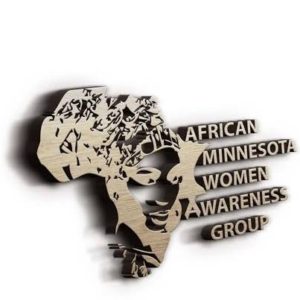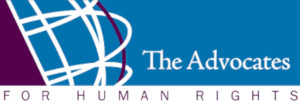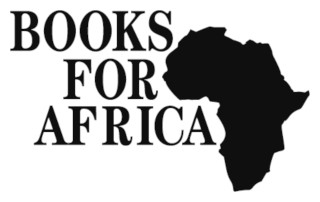Finalists
- by V W
Download the African Awards app today
Meet the Judges
Our judges pick the finalists and present them to you for a vote where needed. Visit the Judges page to learn more about them.
Business of the Year Finalist
Tuma’s Event Ambience Creators
Nominated by Gwantwa Mbilima
There will be no voting in this category this year as there is only one eligible finalist.
READ MORETuma is an inspirational story of an immigrant who has put her best foot forward, press on during difficult times, persevered through it all and emerged with victory.
Her event set up and decorations have embellished many events in the African community and beyond. Her work is immaculate and impeccable. It is not only the decorations but also the kind of person she is. She has motivated many women in the community to start their own businesses and to pursue their dreams despite the challenges. When I asked her how can you help someone who is a competition? She politely replied “Kariakoo (a market/bazaar place in Tanzania) has many stores all selling same goods and none of them are closing down, there is plenty of room for all of us we just need to empower each other”.
Tuma is a force to be reckoned with and I’m nominating her for this award because I believe it’s about time she gets the recognition that she has earned and totally deserves.
African Non-Profit of the Year Finalists
Africa Minnesota Women Awareness Group (AMWAG)
Nominated by Jairo Momanyi
To Vote for Africa Minnesota Women Awareness Group (AMWAG): Text “Giza” to 24587
READ MOREAMWAG has created awareness on domestic violence and their work is an example to many that there are ways to be followed other than killing one another ,has calmed many young families in the diaspora and has thought many on families values in a culturally appropriate way.
Kenya Women in the United States (KWITU) – Minnesota Chapter
Nominated by Veronica Rotich
To Vote for Kenya Women in the United States (KWITU) – Minnesota Chapter: Text “Nile” to 24587
READ MOREThis is a group of Kenyan women in America. It has a membership of 500 women supporting each other from death to job support. We hold each other through happy times and good times. They are also working with women going through Domestic violence helping them navigating through all the hard times. The organization is nation wide with a membership of 13000 women. This for sure is the non profit of the year.
Friend of the Community Finalists
Advocates for Human Rights
Nominated by Nagessa Dube
To Vote for Advocates for Human Rights: Text “Virunga” to 24587
READ MOREI nominate the Advocates for Human Rights because of the excellent asylum legal services it has provided to me and other African asylum seekers, as well as the amazing advocacy work it does through its International Justice Program on African human rights issues at the UN. The Advocates is deeply engaged with African diaspora communities, including the Oromo community. It is the first organization in Minnesota that researched and published reports of the plight of the Oromo people in Ethiopia. Moreover, it played a significant role in the improvement of human rights situations in Ethiopia by highlighting the country’s human rights conditions during United Nations Universal Periodic Review in 2014 and 2019. It is because of this organization that our voice is being heard at UN Human Rights Council. I worked with this team personally at the UN in Geneva, so I know how effective and dedicated it is. Besides its advocacy at UN, the organization has represented many Ethiopians pro bono – including me – in asylum proceedings. Most of us were granted asylum and are now permanent residents. Therefore, I nominate the Advocates for being a true best friend to the African diaspora community, including the Oromo community.
Books for Africa
Nominated by Patrick Plonski
To Vote for Books for Africa: Text “Serengeti” to 24587
READ MOREBooks For Africa is the world’s largest shipper of donated books to the African continent. It has worked with the African diaspora both here in Minnesota, and around the world, to ship over 45 million books and over 3 million digital books to Africa over the past 31 years. It has shipped books to every single one of the 55 countries on the African continent. Based in St. Paul, Minnesota, it has been rated in the top 4% of all charities in the United States by Charity Navigator, the premier assessor of US charities. Books For Africa has a governance board that relies heavily upon expertise from members of the African diaspora. The current President of the Board of Directors — Jote Taddese — is a native of Ethiopia. Recently, Books For Africa established a partnership agreement with the African Union, with the African Union Ambassador to the United States serving as co-chair of the Books For Africa Law and Democracy Initiative (replacing former United Nations Secretary General Kofi Annan who passed away recently). Over the years, Books For Africa and its African diaspora partners have partnered with a wide range of organizations including US embassies across Africa, the United Nations, USAID, US Peace Corps missions across Africa, Thomson Reuters, Merck, Rotary International, Cargill, Land O’Lakes, General Mills, UPS, and others too numerous to name. Books For Africa is a tremendous success story, but it could NOT have achieved its remarkable success without the members of the African diaspora here in Minnesota and around the world who have done the heavy lifting — raised the funds, organized the shipments, distributed the shipments in Africa, got things done!
Artist of the Year Finalist
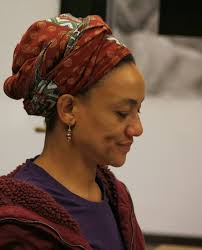
Leah Nelson
Nominated by Chloe Chambers
There will be no voting in this category this year as there is only one eligible finalist.
READ MORELeah Nelson is a Zimbabwean-born dancer, choreographer, actor, producer and director with a passion for organizing social change through the arts. She first came to the United States at age 17 when she was chosen to represent Zimbabwe at the International Choreographer’s Workshop at the prestigious American Dance Festival, eventually graduating with a BFA from the University of North Carolina School of the Arts. She has performed internationally from Brussels to Brazil, and extensively throughout the U.S. and Canada.
She was a 2002 Fellow of the Intermedia Arts Institute of Community Cultural Development, a recipient of a McKnight Fellowship for Dancers (2002) and a Bush Fellowship for Choreography (2004). Ms. Nelson is a Co-Founding Director and Dance Curator, Youth Workshop, and DJ Coordinator of B-Girl BE: A Celebration of Women in Hip-Hop at Intermedia Arts. Ms. Nelson is Artistic Director of Nubia – a pan-African performing arts collective that believes in access to community creativity. Nubia provides classes in hip-hop culture – b-boying, popping, locking, dj’ing, mc’ing, circus and aerosol arts. She has been running an after-school program at Bloomington Public Schools (2004- present) for Galaxy After School Program in 3 sites.
I have worked closely with Ms. Nelson over the past year related to her work as a Teaching Artist in the Ordway’s Dance to Learn program. The Ordway’s relationship with Ms. Nelson began in 2010 when she first joined the Teaching Artist roster and came into the program as a design team member; not only has Ms. Nelson been an invaluable resource in designing and building the Dance to Learn program, she is able to translate her deep love of dance to each student she meets. Working most often with elementary school students in the Twin Cities metro, Ms. Nelson has the ability to tailor her lessons to each group’s, and many times each student’s, individual needs so all are able to participate.
As part of the Dance to Learn program, Ms. Nelson choreographs and performs during the annual Artists in Schools Kickoff performance at the Ordway; this performance is a special experience for students participating in the program as not only do they get to see their teacher onstage, it is often the first time some of them have seen themselves represented onstage. Over the course of her time at the Ordway, she has engaged with over 7,000 students through either performances or residencies.
In 2014 Ms. Nelson, in collaboration with Robin Hickman, managed the Ordway’s “The African Diaspora In Harmony” program as part of the Taking Our Place Centerstage initiative, a comprehensive set of performances and community engagement events within the World Music & Dance series highlighting the varied arts from across the African cultural existence engaging 40,023 over 30 events and engagements . Ms. Nelson also wrote, in collaboration with Sherine Onukwuwe, a Community Report on the success of the program (available at https://ordway.org/wp-content/uploads/African-diaspora-Community-Report.pdf).
Each year, Ms. Nelson hosts a ‘dance party’ outside of the Ordway for the thousands of young people who come through the Festival. She encourages them to self-express, learn hip hop movements and their history, and support in each in creative expression. Her ability to connect with the unique spirits of young people and their grown-ups is an unique and valued gift in our community.
Beyond her work with the Ordway through education and community engagement, Ms. Nelson has been a community leader, healer and artistic producer throughout her career. She has worked with youth and adults to use artistic expression as a vehicle for self-actualization and visibility. She is an accomplished artist and scholar in her own right and stays tightly connected to her Zimbabwean roots, visiting family and community annually. Ms. Nelson is the definition of service leadership though her work is often not recognized publicly. Receiving this award would not only shine a light on her beautiful career as artist and producer, as well as her years of teaching and mentorship, but it would also light up the often-unrecognized contributions of those who are transforming lived in the schools, neighborhoods, and community corridors every day.
Community Leadership Finalist
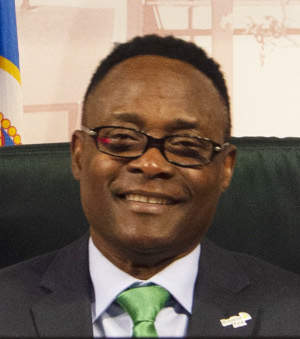
Wynfred Russell
Nominated by Fr. James N. Wilson, II
There will be no voting in this category this year as there is only one eligible finalist.
READ MOREI am nominating Wynfred because he has demonstrated good community leadership over the years in the African immigrants community and the wider American community. As an African Immigrant himself from Liberia, he is deeply passionate about the African Immigrants community. From Immigration to education, affordable housing and many others, Wynfred has brought African Immigrants together, shown them the way, and gave them hope. His community leadership skills contributed to his election on the Brooklyn Park City County for which we today have an African representation on the Brooklyn Park City Council.
Spirit of the Moran Finalist
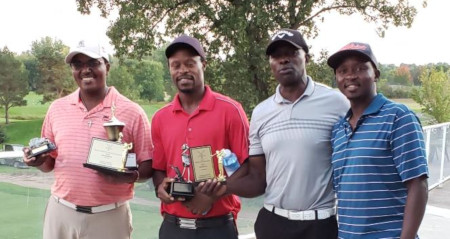
Group Award (Maurice Kumenda, Dr. George Mburu, Peter Omoke, Emmanuel Ongechi)
Nominated by African Awards Judges
There will be no voting in this category this year as there is only one eligible finalist.
READ MOREOn the morning of September 25, 2019, Maurice Kumenda, Dr. George Mburu, Peter Omoke and Emmanuel Ongechi were playing a round of golf at the Edinburgh Golf Course in Brooklyn park, Minnesota when according to news reports, Brooklyn Park Police came and told golfers to be on the lookout for a missing child.
Kumenda, Mburu, Omoke and Ongechi heeded the officers’ advice and had their eyes peeled as they walked the course when at the eighth green they spotted the boys shoes. According to Fox TV, Kumenda then ran to the nearest police officer who jumped in and rescued the boy and brought him ashore where after administering CPR was taken to the nearest hospitals.
The Spirit of the Moran award is given to, among other criteria, acts that save a life and the four nominees exhibited the qualities and the spirit of a Moran.
Student Finalist
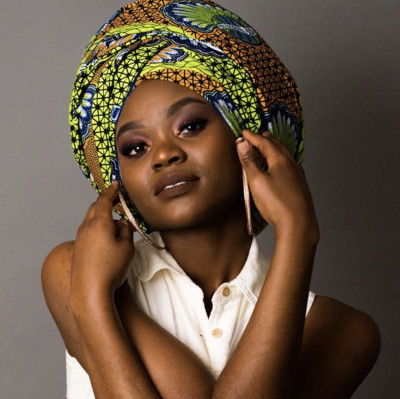
Atosha Rypa
Nominated by Djalna Twaha
There will be no voting in this category this year as there is only one eligible finalist.
READ MOREIn June 2017, after it was announced a police officer was acquitted of manslaughter in the fatal shooting of Philando Castile, Atosha Rypa, who was sitting on the steps of the St. Paul capitol, raced to put her thoughts down on paper. The words “stop, play, and repeat” took the shape of a poem–an examination of how historical events, when ignored, have a tendency to repeat themselves.
By combining personal experiences and historical events in her poetry, Rypa’s performances both educate and inspire action. Rypa uses her story as an African immigrant, her skills as an artist, and her knowledge of history to redefine what it means to be an educator and what it means to be Black in a country which all too often tries to tell the story for her.
Rypa, a senior studying law, criminology, and deviance, has similar goals as a poet and a future educator: to empower people of marginalized identities to speak their truth. Together, the Departments of Sociology and African American & African Studies have provided Rypa with the instruction and support she needs to speak her own.
Rypa’s upbringing taught her the importance of finding her foundation and defining what she stands for. She was born in the Democratic Republic of Congo (DRC), but when she was two, Rypa and her family moved from the DRC to Zambia. Surrounded by Black Africans there, Rypa explains, she wasn’t fully faced with the challenge of defining her racial identity. But when her family moved to the US in 2004, questions of self-identity began knocking at the door.
Suddenly, to her relatives in Africa, Rypa was not Congolese or Rwandese enough—she had become “too American.” To her Black peers, she was “too African.” And, to her non-black peers, she was “too Black” merely because of the color of her skin.
As Rypa explains, she felt confused about her true identity amid all the identities others placed on her. “The longer I was in the US,” says Rypa, “the less I was connected to my own culture.”
This confusion raised the question: How do you hold on to both cultures while also getting used to a new one?
Her struggle to understand her place in society fueled Rypa’s efforts to define the Black experience in order to help young adults better understand themselves and their identities.
“Oftentimes,” says Rypa of her K-12 education, “Black history was either ignored, simplified in order to talk about slavery, or romanticized in the Civil Rights Movement.” As a result, the lessons at school that tried to define Black identity and the “Black experience” left her more confused about who she was.
“Marginalized…people…were often not represented in my K-12 education,” Rypa explains. This lack of representation sparked Rypa’s passion for changing the way history is taught in American classrooms.
“I never had a Black teacher before I came to college,” Rypa says.
Even as an undergraduate, Atosha Rypa is shedding light on the importance of giving voice to marginalized identities through her spoken word poetry. Too often, explains Rypa, “the true narrative of Black history is ignored or inaccurately represented”— especially within the US education system.
After recognizing the lack of language to discuss and define individual black experiences, Rypa began to speak about her new-found identity through spoken word—a talent Rypa sees as making her an “oral history book.” For Rypa, poetry is the bridge connecting her multiple identities as a Black immigrant woman. “Art connects everything,” she says.
In addition to the painful events, Rypa aims to talk about the accomplishments, proud moments, and personalities of black history in her poetry. As she explains, “it’s hard to learn about Black joy when all that is being taught is the sad part of Black history.”
In her future career, Atosha wants to be a role model for other women and people of color. She envisions herself as a high school social studies teacher before eventually becoming a professor of sociology, combining her love of history with her passion for understanding society. Rypa is determined—and hopeful—that she can “use our past as fuel to move us forward.”



